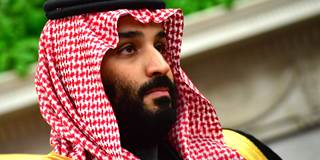OnPoint Subscriber Exclusive
The Big Picture brings together a range of PS commentaries to give readers a comprehensive understanding of topics in the news – and the deeper issues driving the news. The Big Question features concise contributor analysis and predictions on timely topics.

The Rogue Prince
With the disappearance and suspected murder of the journalist Jamal Khashoggi, Saudi Crown Prince Mohammed bin Salman's regime is once again the subject of international obloquy. But whether the young autocrat will be held to account remains to be seen.
In this Big Picture, Daoud Kuttab expects the US to continue prioritizing arms deals with the Kingdom over concerns about free speech and human rights. And Barak Barfi agrees, noting that the US simply has too much at stake in its alliance with the Saudis to let any one scandal derail the relationship.
Still, Nina L. Khrushcheva looks at the broader history of autocrat-directed assassinations, and concludes that MBS's actions could do lasting harm to Saudi Arabia's international standing. And Shlomo Avineri reminds us that the crown prince's larger reform effort already places him in a precarious position, both at home and abroad.